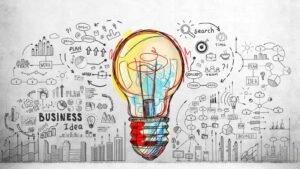International Day Against Homophobia Transphobia and Biphobia 2024: International Day Against Homophobia, Transphobia, and Biphobia is a May 17 holiday that is observed globally. Every year, the event is conducted in an effort to bring attention to L.G.B.T.Q.-related concerns. Sharing information regarding certain challenges encountered by the community is beneficial. These orientations are deemed illegal in numerous nations across the globe.
They are prohibited from engaging in sexual activity and are unable to legally wed. Residents of the community encounter considerable discrimination and prejudice. They are also occasionally confronted with hostility that escalates to violence. The holiday contributes to the stigmatization of these orientations.
International Day Against Homophobia Transphobia and Biphobia: History
The 17th of May is observed annually as International Day Against Homophobia, Transphobia, and Biphobia, an L.G.B.T.Q. awareness holiday. The holiday sheds light on numerous difficulties that the L.G.B.T.Q. community faces. They have been deprived of legal protections and essential health care for many years. In some cases, they have been coerced into undergoing unnecessary medical procedures or surgery. They are deprived of fundamental human and civil liberties.
In 2004, Louis-Georges Tin formally established the holiday. The inaugural occasion took place on May 17, 2005, with an estimated 24,000 individuals in attendance. To mark the occasion of the World Health Organization’s 1990 declassification of homosexuality as a mental disorder, the 17th of May was selected as the specific date.
In 2009, in collaboration with L.G.B.T. organizations, a petition was initiated to amend the campaign’s name to include the term “transphobia.” The petition garnered the support of over 300 non-governmental organizations (NGOs) representing 75 countries. Three Nobel Prize winners—Elfriede Jelinek, Francoise Barré-Sinoussi, and Luc Montagnier—also provided support. In 2009, France became the first nation to formally exclude transgender issues from its roster of recognized mental maladies.
Tin, the holiday’s founder, served as the committee chief for the occasion until his resignation in September 2013. Law professor, attorney, and renowned Venezuelan trans rights activist Tamara Adrián succeeded him upon his retirement. Adrián was elected as one of the inaugural transgender legislators in Latin America in 2015. Biphobia was incorporated into the holiday campaign’s name in 2015.
Wear Purple for Peace Day 2024 (US): Explore its Surprising History, and Facts
International Day Against Homophobia Transphobia and Biphobia: FAQs
Define sexual orientation.
Sexual orientation pertains to the gender or sex of individuals towards whom an individual experiences sexual attraction.
Is a particular sexual orientation incorrect?
There is no incorrect sexual orientation. To put it simply, various varieties exist.
What constitutes bisexuality?
An individual possesses bisexual orientation if they experience attraction to both sexes.
International Day Against Homophobia Transphobia and Biphobia: Activities
Commemorate the holiday
You are welcome to celebrate the holiday with family and acquaintances. This can be accomplished in person or online.
Gain a deeper understanding of the community
The challenges encountered by the L.G.B.T.Q. community can be further explored. Presently, an abundance of information is accessible.
Contribute by way of donation
Why not donate? Contributions to L.G.B.T.Q. organizations will aid in the development of solutions to several community-wide problems.
Five Facts about L.G.B.T.Q. community
Members of the L.G.B.T.Q. community are harassed.
A minimum of 52% to 87% of lesbian, homosexual, and bisexual individuals have experienced verbal abuse.
Some are pursued.
13% to 38% of L.G.B.T.Q. individuals have experienced being pursued or followed.
They are subjected to assault.
A majority of the community, exceeding 24%, has experienced physical assault.
They are conscious of their gender.
The majority of individuals who identify as L.G.B.T.Q. are content with their biological sex and do not identify with the opposing sex.
It is not curable.
Since homosexuality does not qualify as a mental illness, psychotherapy is unable to remedy it.
International Day Against Homophobia Transphobia and Biphobia: Significance
It enhances consciousness.
Prevalent challenges confronting the L.G.B.T.Q. community are violence and discrimination stemming from intolerance. By promoting awareness of the challenges encountered by the L.G.B.T.Q. community, this holiday serves to do so.
It aids the populace.
The holiday facilitates social cohesion. Those who can connect can form a support network for one another.
This causes history.
The occasion itself contributes to establishing the tempo. By organizing this occasion, individuals may develop greater acceptance of diversity, thereby potentially streamlining affairs for subsequent generations.
International Day Against Homophobia Transphobia and Biphobia: Dates
| Year | Date | Day |
|---|---|---|
| 2024 | May 17 | Friday |
| 2025 | May 17 | Saturday |
| 2026 | May 17 | Sunday |
| 2027 | May 17 | Monday |
| 2028 | May 17 | Wednesday |
Global Day to End Child Sexual Abuse 2024 (International): Exploring History, Facts and FAQs












